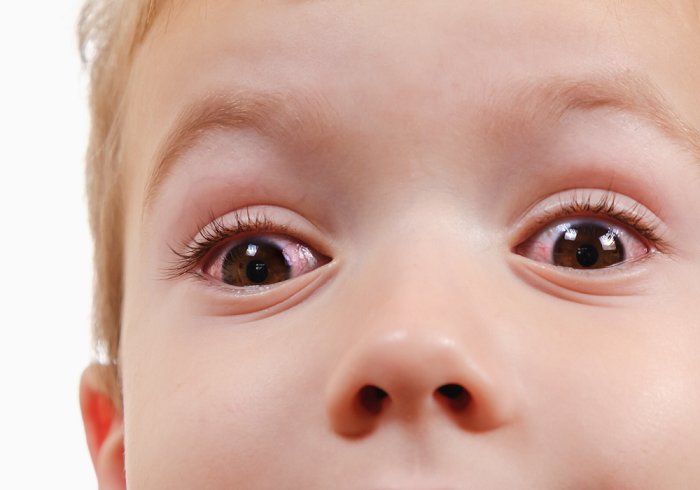It looks like your text got cut off. Could you please provide the complete text you would like translated from French to English?gluten allergy is an abnormal immune reaction of the body to the presence of gluten, which is a protein found in certain grains such as wheat, barley, and rye. The symptoms of this allergy can vary from person to person, but they can be quite severe and affect the quality of life of those who suffer from it.
Gluten allergy is quite rare, but it can be dangerous in the most severe cases, leading to a severe allergic reaction called anaphylaxis. It is therefore important to diagnose gluten allergy at the first symptoms and to avoid any contact with foods containing gluten to prevent complications. In this article, we will closely examine the symptoms and causes of this allergy.
What are the symptoms in infants ?
Infants can develop a gluten allergy, although it is relatively rare. These symptoms may include:
- Gastrointestinal problems such as abdominal pain, diarrhea or constipation, vomiting.
- A loss of appetite and weight.
- A rash, itching, or hives.
- In some cases, respiratory symptoms such as wheezing, coughing, or difficulty breathing.
- Fatigue, anemia, loss of activity and liveliness.
- Slowed growth and developmental delay in the baby.
What are the symptoms in children ?
Gluten allergy can develop during a child's growth years and not necessarily from birth. Here are the symptoms that may appear in a child:
- Digestive troubles such as abdominal pain, vomiting, diarrhea, constipation, and bloating.
- A rash with itching or hives.
- Irritability and fragility of the teeth.
- Respiratory symptoms such as wheezing, coughing, or difficulty breathing.
- Headaches or migraines.
- Fatigue or weakness.
- Muscle or joint pain.
- Growth delays or developmental issues.

What are the symptoms in adults ?
The symptoms of gluten allergy in adults can vary from person to person, but they can be quite severe and affect the quality of life of those who suffer from it. Symptoms can appear a few minutes to a few hours after consuming foods containing gluten. They may include:
- Gastrointestinal problems such as abdominal pain, vomiting, diarrhea, constipation, bloating, and gas.
- Headaches or migraines and fatigue.
- Joint or muscle pain.
- Mood disorders, anxiety, or depression.
- Concentration or memory problems.
- Numbness or tingling in the hands or feet.
- Skin symptoms such as rashes, itching, or hives.
- Some people also suffer from anemia or osteoporosis.
- Respiratory symptoms such as difficulty breathing, wheezing, or coughing.
- In rare cases, a severe allergic reaction called anaphylaxis can occur, which can lead to loss of consciousness and even be life-threatening.
It is important to note that these symptoms can also be caused by other health issues in these age groups, so it is important to consult a doctor for an accurate diagnosis and an appropriate treatment plan.
How to know if you are allergic to gluten ?
The symptoms and signs mentioned may indicate that you are allergic to gluten. However, these symptoms can vary from one person to another and could also be associated with other health issues. Therefore, the most reliable way to determine if you are allergic to gluten is to consult a specialist in allergology or immunology for a more precise diagnosis. Here is how the diagnosis process works:
Medical examination and health history: The doctor will start by asking you questions about your symptoms, medical history, and diet to determine if a gluten allergy is possible.
Blood tests: The doctor may request a blood test to check for the presence of IgE antibodies specific to gluten. These antibodies are produced by the immune system in response to a gluten allergy.
Oral provocation test: It is requested in cases where blood tests are negative. In this test, the patient is exposed to increasing amounts of gluten under medical supervision to see if allergy symptoms occur.
Elimination of foods containing gluten: If the tests confirm a gluten allergy, the doctor will likely recommend eliminating all foods containing gluten from your diet to relieve the symptoms. The person will then need to consume gluten-free foods such as fruits and vegetables, legumes, dairy products that do not naturally contain gluten, or there are also foods that naturally contain gluten but can be found in gluten-free versions such as gluten-free bread, gluten-free pasta, or even gluten-free wraps.
What is the difference between celiac disease and gluten intolerance ?
Celiac disease and gluten intolerance are two distinct conditions, although they present similar symptoms and both involve an intolerance to gluten.
The celiac disease Celiac disease is an autoimmune disorder in which the immune system reacts to gluten and attacks the cells of the small intestine, causing inflammation and tissue damage. People with celiac disease must completely avoid gluten, as even small amounts can trigger an immune response that damages their small intestine. Symptoms of celiac disease can include gastrointestinal issues as well as non-gastrointestinal symptoms such as headaches, fatigue, and joint pain.
It looks like your text got cut off. Could you please provide the complete text you would like translated from French to English?non-celiac gluten intolerance, on the other hand, is a condition in which individuals exhibit symptoms similar to those of celiac disease in response to gluten consumption, but do not have the tissue damage and intestinal inflammation characteristic of celiac disease.

Why do people become gluten intolerant ?
Gluten intolerance is a complex condition and the exact cause is not yet well understood. However, there are several factors that may contribute to the development of gluten intolerance, including:
Genetics: Some people have a genetic predisposition to gluten intolerance; research has identified several genes that appear to play a role in the development of the condition.
Environmental factors: Factors such as viral infection, intestinal surgery, antibiotic use, stress, or a highly processed diet can all contribute to the development of gluten intolerance.
Imbalance of the intestinal flora: Also known as the gut microbiome, they can play a role in the development of gluten intolerance. Gut bacteria help break down food, including gluten, and an imbalance can lead to poor gluten digestion and induce an abnormal immune response.
Autoimmune disorders: People with autoimmune diseases such as Hashimoto's thyroiditis, type 1 diabetes, and multiple sclerosis are at a higher risk of developing gluten intolerance.












